MS man's plea after year in care home with older people
- Published
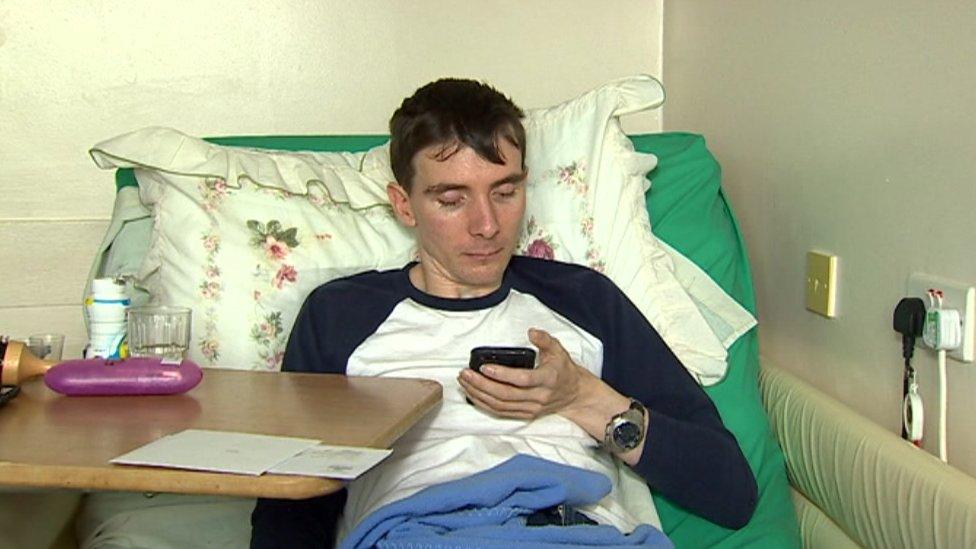
Tim White said he wants to be with people his own age
A disabled man in his 30s is pleading to "get his life back" after a council placed him in a care home for older people, away from friends and family.
Bridgend council moved Tim White, 37, into the Swn y Mor home in Port Talbot for a two-week stay when his multiple sclerosis (MS) symptoms worsened.
More than a year on, the former electrician said he was still waiting to be moved into specialist housing.
Bridgend council said it had no record of Mr White asking for a move.
Mr White said he had been forced to sell his home to pay for his care.
"Help me," Mr White said from his bed in the home where the former extreme sport enthusiast now spends most of his days.
"I need to get my own life back and my family and friends."

Mr White is a former extreme sport enthusiast
Mr White is the youngest of the 91 residents at Swn y Mor Care Centre, which has 15 places for people under the age of 65.
He said he feels safe at the home and gets good care, but misses people his own age and his brother, who is still living in Bridgend and cannot visit much because of problems with his car.
"I want to be with someone my own age just to go out and have fun," he explained.
"I want to go back there if they can find something. I don't want to be here using all my money up staying here."
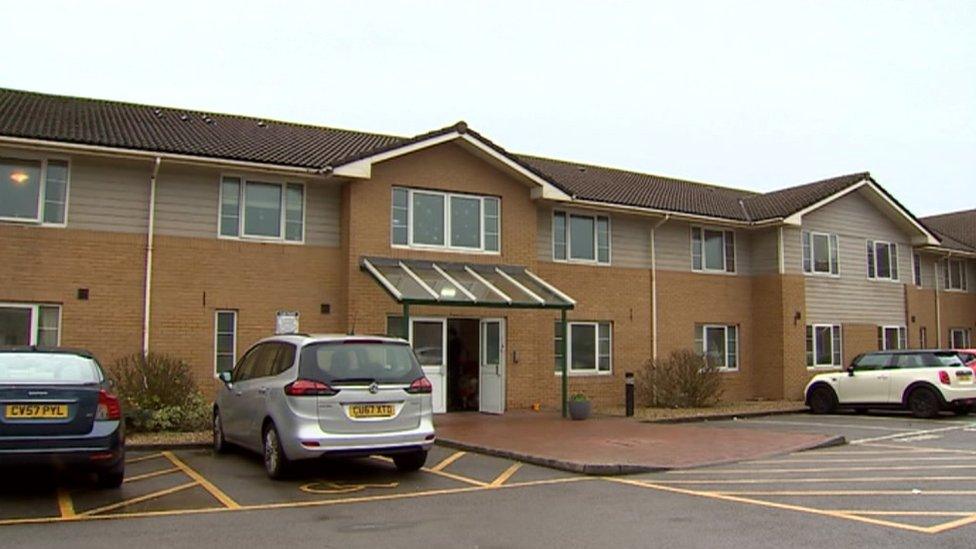
Mr White said the care at the Swn y Mor care home in Neath Port Talbot was very good
Disability charities said thousands of vulnerable adults are getting inadequate support, despite Welsh Government legislation brought in two years ago that places a legal duty on local authorities to report adults at risk and provide them with independent advocates to represent them.
A Freedom of Information request by BBC Wales found that since the Social Services and Well-being Act came into force in 2016, reports of adults at risk have gone up by more than a fifth.
The 21 out of 22 Welsh councils that responded recorded 18,049 reports of adults at risk last year, up from 14,784 in 2016/17.
Official figures indicate almost 14,000 adults are suspected of being at risk, a 17% rise in the last two years.
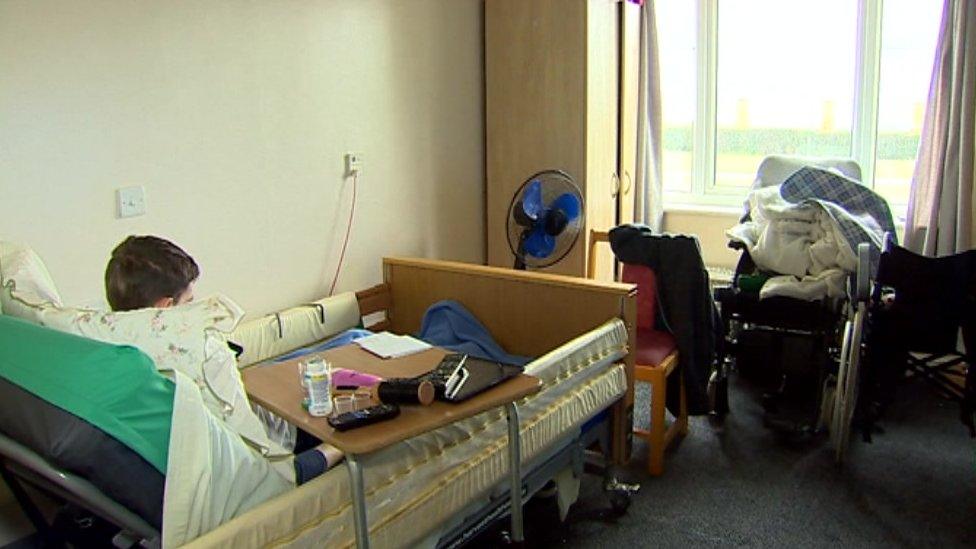
Mr White is on a waiting list for disabled housing
But over the same period, a survey by Age Cymru found the number of full-time advocates in Wales had fallen by nearly half, from 87 in 2016 to 44 last year.
Louise Hughes, Age Cymru's safeguarding manager, said it has led to a "postcode lottery in Wales" on access to advocacy.
"Those people are potentially not able to get their voices heard, they're not able to get their rights upheld, they're not able to be part of decision making," said Ms Hughes.
Since he was moved to Port Talbot in 2017, Mr White said he has had little support from Bridgend council.
"I just need to get onto them and get them to fight for me and get me back to Bridgend - that's all I can do is ask and ask and ask," he added.

Multiple sclerosis
Multiple sclerosis (MS) is a condition which can affect the brain and/or spinal cord
It can cause problems with vision, arm or leg movement, sensation or balance
Average life expectancy is slightly reduced for people with MS
It is estimated that there are more than 100,000 people diagnosed with MS in the UK
There is currently no cure for MS, but a number of treatments can help control the condition
Source: NHS, external

Without someone to advocate on their behalf, Fiona McDonald from MS Cymru said vulnerable adults can become isolated and lonely.
"The act was supposed to transform the way that social care is delivered in Wales but in reality it's been very poor," she said.
"They're not being told about support services and advocacy services in their local area and they're actually being asked to pay for services as well so it's wholly inappropriate."
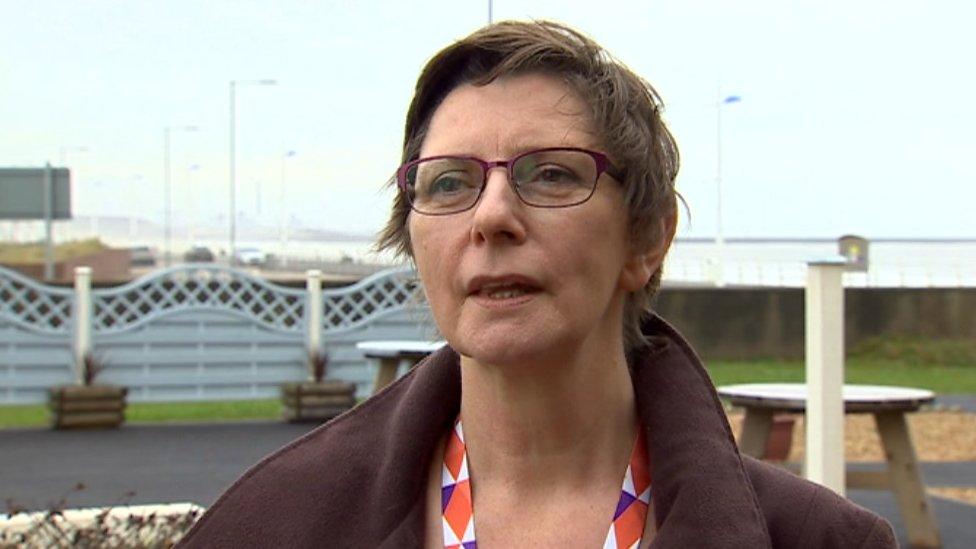
Fiona McDonald, of MS Cymru, said the new legislation had been "very poor"
North Wales AM, Mark Isherwood, who is chair of the cross-party group on neurological conditions, said too many of the estimated 100,000 people living with a neurological condition were being failed.
"People are supposed to be offered and provided with advocates who can represent their concerns and interests," Mr Isherwood said.
"If [the act] is not delivering, then it's the Welsh Government's responsibility to take action to introduce the changes required to deliver the services and improve the lives that was intended by this legislation."
A Welsh Government spokesman said: "We expect local authorities to meet their legal obligations."
He added that Care Inspectorate Wales (CIW) had the powers to review the way councils operate social services and hold them to account.
A Bridgend council spokesman said Mr White had not approached the local authority to say he was unhappy at the Swn Y More care home, or that he would like support to return to Bridgend.
"If he would prefer to be closer to home then we will certainly contact him to discuss his options for suitable accommodation and offer information, advice and assistance to enable that," he added.
- Published18 March 2018
- Published19 March 2018
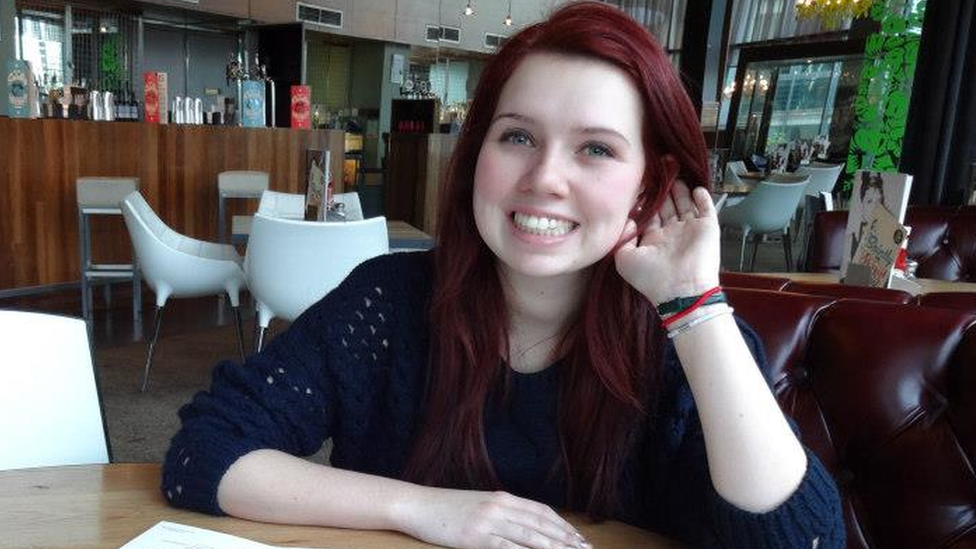
- Published23 March 2018
